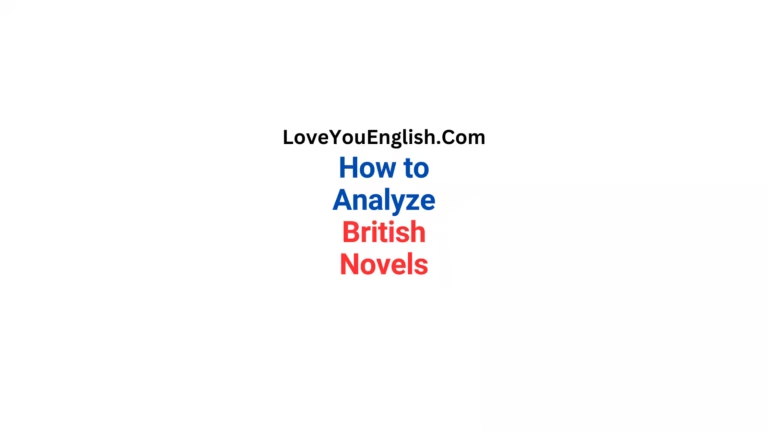The Concept of Utopia in English Literature
The idea of a utopia has fascinated people for centuries. It represents a perfect world where everything is fair, peaceful, and harmonious. In English literature, the concept of utopia has been explored in many ways, from hopeful dreams of ideal societies to sharp criticisms of human flaws.
Let’s dive into what utopia means, how it has been portrayed in literature, and why it continues to capture the imagination of writers and readers.
What Is Utopia?
The word “utopia” comes from Greek. It was first used by Sir Thomas More in 1516 when he wrote his famous book Utopia. The term combines two Greek words: ou (meaning “no” or “not”) and topos (meaning “place”). So, utopia literally means “no place.” This suggests that a perfect world might not exist in reality, only in our imagination.
A utopia is an ideal society where:
- Everyone is equal.
- There is no poverty or crime.
- People live in harmony with nature and each other.
- Justice and fairness are the foundation of life.
Although the idea sounds wonderful, writers often question whether such a place is possible. Many stories explore the challenges of creating or maintaining a utopia, showing that perfection can be complicated.
Early Utopian Literature: Thomas More’s Utopia
Thomas More’s Utopia is the starting point for discussions about utopia in English literature. In the book, a traveler named Raphael Hythloday describes an island called Utopia. On this island:
- People share everything, including property.
- There is no money, so greed and theft do not exist.
- Everyone works for the good of the community.
- Education and healthcare are free for all.
More’s Utopia was both a dream of a better world and a critique of the problems in Europe during his time. By imagining an ideal society, More highlighted issues like corruption, inequality, and greed. However, he also hinted that such perfection might be impossible because of human nature.
Utopia as a Critique of Society
After More, many writers used the idea of utopia to criticize their societies. By imagining perfect worlds, they could show what was wrong with their own. Some examples include:
- Jonathan Swift’s Gulliver’s Travels (1726): Swift’s famous novel is full of imaginary lands. One of them, the land of the Houyhnhnms, is a utopia ruled by intelligent, peaceful horses. However, Swift uses this to criticize human greed, violence, and hypocrisy. The story shows that humans often fail to create harmony because of their flaws.
- William Morris’s News from Nowhere (1890): Morris imagines a future England where people live in harmony with nature. There is no money, and everyone works willingly for the good of society. While this world seems ideal, Morris’s book is a response to industrialization and the harsh working conditions of his time. He shows a desire to return to simpler, more meaningful ways of living.
Dystopias: The Opposite of Utopia
While utopias focus on perfect societies, dystopias show the opposite. A dystopia is a world where everything has gone wrong. In these stories, attempts to create a utopia often lead to suffering, oppression, or chaos. Dystopian literature warns us about the dangers of trying to create a perfect society.
Famous Dystopian Works
- George Orwell’s 1984 (1949): Orwell’s novel is a powerful example of a dystopia. It describes a world where a totalitarian government controls every aspect of life. People have no freedom, and even their thoughts are monitored. Orwell shows how the desire for control and power can turn utopian dreams into nightmares.
- Aldous Huxley’s Brave New World (1932): Huxley imagines a society where people are happy because they are controlled. Science and technology are used to eliminate pain, but at the cost of individuality and freedom. Huxley’s book asks important questions: Is happiness worth giving up freedom? Can technology truly solve human problems?
- Suzanne Collins’s The Hunger Games (2008): In this modern dystopian story, society is divided into rich and poor. The wealthy elite enjoy luxury while the rest struggle to survive. The government uses fear and violence to maintain control. Collins’s book is a critique of inequality, greed, and the abuse of power.
Themes in Utopian and Dystopian Literature
Utopian and dystopian literature often explores similar themes, including:
- Human Nature: Are humans capable of living in a perfect society? Many writers suggest that greed, ambition, and fear make utopia impossible.
- Freedom vs. Control: Utopias often require strict rules to maintain order. But can true happiness exist without freedom? Dystopias show the dangers of too much control.
- Technology: Some stories imagine that technology will create utopia by solving problems like hunger or disease. Others warn that it can lead to dystopia if used for control or destruction.
- Equality: Utopias dream of a world where everyone is equal. But achieving equality can be difficult, as seen in both utopian and dystopian stories.
- The Environment: Many utopias imagine societies living in harmony with nature, while dystopias often show the consequences of environmental destruction.
Why Does Utopia Matter?
The concept of utopia remains important because it helps us imagine better futures. Even if a perfect world is impossible, thinking about utopia inspires us to improve our societies. Writers use utopia to:
- Critique current problems like inequality, greed, and corruption.
- Offer hope for a better future.
- Warn about the dangers of extreme control or technological misuse.
Modern Utopian and Dystopian Stories
Today, the ideas of utopia and dystopia continue to appear in books, movies, and TV shows. Some modern examples include:
- Margaret Atwood’s The Handmaid’s Tale (1985): Atwood’s novel is a dystopian story about a society where women lose all rights. The book is a warning about the dangers of extreme control and inequality.
- Lois Lowry’s The Giver (1993): In this novel, society seems perfect at first. There is no pain, conflict, or inequality. However, people have lost their emotions and individuality. Lowry’s book explores the cost of a “perfect” world.
- Movies like The Matrix (1999): This film imagines a world where humans live in a simulated reality. While life seems perfect, it is controlled by machines. The movie raises questions about freedom, reality, and the role of technology.
The Balance Between Utopia and Dystopia
Utopian and dystopian literature often reminds us that balance is key. A perfect world may not exist, but we can still work to make our societies fairer, kinder, and more sustainable. By exploring both utopia and dystopia, literature helps us understand the challenges and possibilities of building better worlds.
Conclusion
The concept of utopia in English literature is more than just a dream of perfection. It is a tool for questioning society, exploring human nature, and imagining the future. Whether through hopeful visions or dark warnings, utopian and dystopian stories continue to teach us valuable lessons. They remind us that while perfection may be out of reach, striving for a better world is always worth the effort.
Read more:
- Famous Poets of English Literature and Their Masterpieces
- The Role of Shakespeare in Shaping English Literature
- Exploring Themes of Love and Loss in English Literature
- The Role of Humor in Shakespeare’s Comedies
- The Concept of Utopia in English Literature
- How to Approach Literary Criticism
- Women Writers in English Literature







